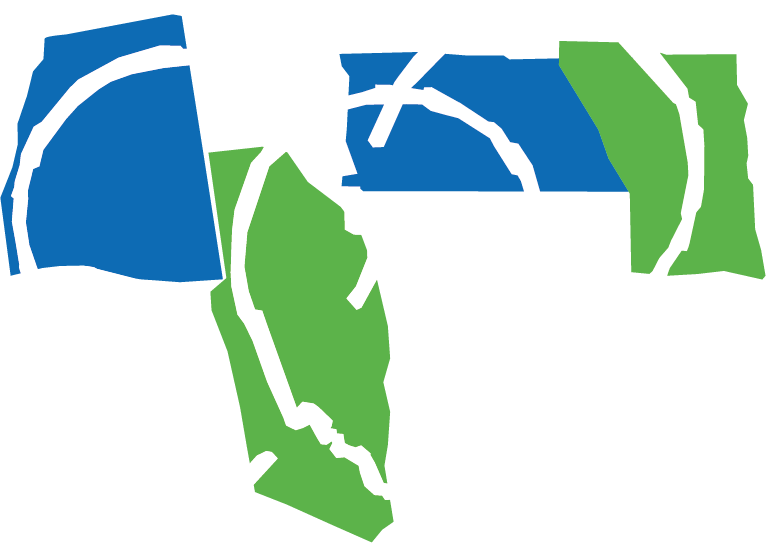Daniel
López García

Redes sociales
I work since 2021 as tenured scientist in the Institute of Economics, Geography and Demography (IEGD) as a full scientist in the position of “Territorial analysis of agri-food systems”. Since then, while maintaining collaborations with the Entretantos Foundation and other social entities, I have focused on research. My work focuses on transitions towards sustainability in agrifood systems in line with agroecology, in two main lines of work.
Firstly, in the analysis of territorialized, participatory and multi-actor methodologies and processes of agroecological transitions. In this line, I have focused on how to adapt such transitions to facilitate the participation of some subaltern actors in agri-food systems (conventional farmers, small retail trade, marginalized social groups), the construction of plural social subjects to lead such transition, the agroecological and territorialized Living Labs, the need to connect agroecological and alternative food networks with food insecurity networks, the multi-actor and multi-level processes necessary for this, or on the symbolic elements that make up the context of such transitions.
The second line of work has to do with the context of power relations around agroecological transitions in agri-food systems. In this line I develop work around the analysis of agricultural and food public policies from the local to the national scale, agricultural digitalization policies, interactions between administrations and agroecological social movements, the political agency of agroecologically oriented farmer groups, knowledge co-production and agricultural knowledge and innovation systems (AKIS), and governance frameworks in the implementation of public policies.
I am a member of the European Agroecology Partnership, the European Society of Rural Sociology, and the Spanish Society of Organic Agriculture. I have worked as coordinator of the Agroecology Area in the Entretantos Foundation and as Technical Coordinator of the Spanish Network of Municipalities for Agroecology. I have participated in the coordination of the participatory processes of elaboration of the Local Food Strategies of Valladolid (2018), Zaragoza (2019) and Segovia (2020), or as an external advisor of those of Barcelona (2022) and Valencia (2016-2023). I participate as a lecturer in several national and international master programs: “Agroecology, a sustainability approach for rural development”, at UNIA, since 2006; “Ecological agriculture”, at UB, since 2009; and “Ecological agriculture and livestock”, at UPO, Seville, since 2011. Within these programs I have been able to supervise more than 30 Master Thesis, and I am part of the PhD program in “Agroecology, Food Sovereignty and Commons” at the University of Cordoba.
López-García, D. Zerbian, T., Cuevas, S., Moragues-Faus, A. (2025). Blurred powers, multiple agencies, and discontinuous temporalities. A Multi-Level Perspective on bottom-up innovation in agri-food policies. Environmental Innovation and Societal Transitions
López-García, D., García-García, J., García-García, V., Rada-Sereno, O., & Vázquez-Macías, G. (2025). What is transformative in participatory approaches to territorial agroecological transitions? A systematization of five case studies in Spain. Agroecology and Sustainable Food Systems, 1–39. https://doi.org/10.1080/21683565.2025.2456946
Facchini, F., & López-García, D. (2024). Agroecology-oriented food redistribution amid a pandemic: contested local governance arrangements for sustainable food security. Agroecology and Sustainable Food Systems, 1–32. https://doi.org/10.1080/21683565.2024.2444998
Acebes P, Muñoz-Gálvez FJ, Iglesias-González Z, García-Llorente M, López-García D (2024). Unveiling human–wildlife interactions in the context of livestock grazing abandonment and the return of large carnivores, ungulates and vultures: A stakeholder perspective. People and Nature. https://doi.org/10.1002/pan3.10769
López-García, D., & Carrascosa-García, M. (2024). Sustainable food policies without sustainable farming? Challenges for agroecology-oriented farmers in relation to urban (sustainable) food policies. Journal of Rural Studies, 105, 103160. https://doi.org/https://doi.org/10.1016/j.jrurstud.2023.103160
Zerbian, T., Moragues-Faus, A., López-García, D., García-García, L., (2024). Territorialising knowledge-policy interfaces: Lessons from urban food governance spaces. Environmental Science & Policy, 161, 103883. https://doi.org/10.1016/j.envsci.2024.103883
López-García D, Cruz-Maceín JL, DiPaula M., (2024). Agri vs. food? Perceptions of local policymakers on agri-food policies from a multilevel approach. Frontiers Sustainable Food Systems, 8:1399746. doi: 10.3389/fsufs.2024.1399746
Facchini, F., López-García, D., Villamayor-Tomas, S. et al. (2024). Intersectional coalitions towards a just agroecology: weaving mutual aid and agroecology in Barcelona and Seville. Agriculture and Human Values 41, 955–973. https://doi.org/10.1007/s10460-023-10529-0
Walthall, B., Vicente-Vicente, J.L., Friedrich, J., Piorr, A., López-García, D. (2024). Complementing or co-opting? Applying an integrative framework to assess the transformative capacity of approaches that make use of the term agroecology, Environmental Science & Policy, 156: 103748. https://doi.org/10.1016/j.envsci.2024.103748
López-García, D., G. Vázquez-Macías, J. García-Fernández, M. Schmitt, P. Ortega-Faura, and J. Espluga-Trenc. (2023). Towards a Politics of Recognition: Exploring the Symbolic Contexts of Material Agroecological Transitions. Sustainability 15, 13: 10091. https://doi.org/10.3390/su151310091
López-García, D. & M. Carrascosa-García, (2023). Agroecology-oriented farmers’ groups. A missing level in the construction of Agroecology-based Local Agri-food Systems? Agroecology and Sustainable Food Systems, 47:7, 996-1022, DOI: 10.1080/21683565.2023.2217095
López García, D., L. Calvet-Mir, M. Di Masso y J.Ll. Espluga, (2022). “Multiactor networks and innovation niches. University training for the local agro-ecological dynamization”. In: Anderson, C.R., Binimelis Adell, R., Pimbert, M.P., Rivera Ferre, M. (eds) Critical Adult Education in Food Movements. Springer, Cham. Pp. 47-59. https://doi.org/10.1007/978-3-031-19400-9_4. 1 cita.
Di Masso M, López-García D, Clemente-Longas J & García-García V, (2022). Taking food out of the private sphere. Addressing gender relations in urban food policy. Agroecology and Sustainable Food Systems. https://doi.org/10.1080/21683565.2021.1936742. 6 citas
López-García, D. & M. González de Molina, (2021). An operational approach to Agroecology-Based Local Agri-Food Systems. Sustainability, 13(15), 8443; https://doi.org/10.3390/su13158443. 9 citas.
Espluga-Trenc, Josep, L. Calvet-Mir, D. López-García, M. Di Masso, A. Pomar & G. Tendero, 2021. Local Agri-Food Systems as a Cultural Heritage Strategy to Recover the Sustainability of Local Communities. Insights from the Spanish Case. Sustainability 13(11), 6068. https://doi.org/10.3390/su13116068. 6 citas.
González de Molina, M. & D. Lopez-Garcia, 2021. Principles for designing Agroecology-based Local (territorial) Agri-food Systems: a critical revision, Agroecology and Sustainable Food Systems, 45(7):1050-1082, DOI: 10.1080/21683565.2021.1913690. 30 citas.
López-García D., M. Cuéllar-Padilla, A. de Azevedo Olival, et al., 2021. Building agroecology with people. Challenges of participatory methods to deepen on the agroecological transition in different contexts. Journal of Rural Studies, 83: 257-267. https://doi.org/10.1016/j.jrurstud.2021.02.003 . 27 citas
López-García, D., 2020. Who is the subject of agroecological transitions? Local Agroecological Dynamization and the plural subject of food systems transformation. Landbauforschung-Journal of Sustainable and Organic Agricultural Systems 70(2): 36-42. https://doi.org/10.3220/LBF1606213050000
López-García, D., & González de Molina, M., 2020. Chapter 9: Co-Producing Agro-Food Policies for Urban environments: Towards Agroecology-based Local Agri-food Systems. In M. Egerer & H. Cohen (Eds.), Urban Agroecology, Interdisciplinary Research and Future Directions (p. 189-208). Boca Ratón (FL), EEUU: CRC Press. ISBN: 9780429290992. 12 citas.
López García, D., L. Calvet-Mir, M. Di Masso, J. Espluga, G. Tendero-Acin y A. Pomar- León, 2019. Multiactor networks and innovation niches. University training for the local agro-ecological dynamization. Agriculture and Human Values. https://doi.org/10.1007/s10460-018-9863-7 . 42 citas
López-García, D., V. García-García, Y. Sampedro-Ortega, A. Pomar-León, G. Tendero-Acín y A. Sastre-Morató, 2019. Exploring the Contradictions of Scaling: Action Plans for Agroecological Transition in Metropolitan Environments. Agroecology and Sustainable Food Systems. DOI: 10.1080/21683565.2019.1649783. 15 citas
López-García, D., 2015. Producir alimentos, reproducir comunidad. Redes alimentarias alternativas como formas económicas para la transformación social y ecológica Madrid: Libros en Acción, 198 p. ISBN 978-84-944051-3-6. 77 citas.
G.I. Guzmán Casado, D. López García, L. Román Bermejo y A.M. Alonso Mielgo, 2013. Participatory Action-Research in Agroecology: building organic food networks in Spain. Journal of Sustainable Agriculture, 37,1. DOI: 10.1080/10440046.2012.718997. 124 citas.
- TAELabs. Territorial Agroecological Living Labs (2025-2028)
- European Agroecology Partnership. (2024-2032)
- FOODCITYBOOST. Integrated assessment of urban farming impacts and policies for boosting sustainable urban agricultural development linking urban, peri-urban and rural areas. (2024-2027)
- FOODTRANSITIONS. Transiciones hacia la Sostenibilidad y Seguridad alimentarias Globales: Ensamblando ciudades sostenibles y justas (2022-2025)
- ALISOS. Las redes alimentarias sostenibles como cadenas de valores para la transición agroecológica y alimentaria: implicaciones para las políticas públicas territoriales (2021-2025)
- SOIL NEXUS. Building policy tools for water- and waste- based urban soil remediation (2020-2024)
- CONECT-e (CONocimiento ECológico Tradicional)
- AGRIAMBIO. Mejora adaptativa de la eficacia socio-ambiental de la Política Agrícola Común (PAC) (2022-actualidad, Ministerio de Agricultura, Pesca y Alimentación)
- RURBACT-Ae. Vínculos RURal-URBanos para fortalecer la Acción política multinivel y multiactor para el salto de escala de la agroecología. (2021-actualidad, Red de Municipios por la Agroecología)



